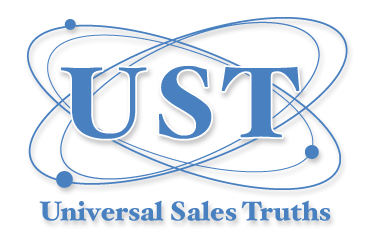The absolute best way to demoralize a sales rep is to assign him a quota that is unattainable. In small- to medium-sized companies, this is typically not the case. However, as companies grow, too many times I have witnessed quota assignments that are totally unrealistic, given the finite sales opportunities in a particular territory. While all sales reps are not created equal, the same holds true for sales territories. Yet time and time again, we see the exact same quota being assigned to multiple sales reps. The typical reason I hear for this is that it would take too much time and effort to assign individual quotas based on territory potential. My response to this is that the extra effort involved would result in achieving the original objective of the quota. Of course, this assumes that we can agree on the purpose of the quota. I believe the sales quota should be a tool to achieve the following goals:
- Meet overall corporate revenue objectives
- Drive sales in specific product areas that are important to the company’s success
- Be a “stretch” number for the sales rep to achieve recognition (like sales-incentive trips)
- Serve as a benchmark for bonus, commission accelerators, etc.
- Be a tool to weed out underperformers
So, if a territory has the overall potential of $10 million, and you assign a sales quota of $1 million, the sales rep is likely to make his number without much of a stretch. Conversely, if the territory has an overall potential of $3 million, and his quota is the same $1 million, then in order to hit that number he would need to garner a significantly larger portion of the overall territory potential. So if the former rep sold $1.5 million and made quota, and the latter rep sold $900,000 and did not make quota, who would you say did a better job? To make matters worse, the former rep would be recognized as a top sales performer who received bonus checks and incentive trips, while the latter rep might lose his job, all because of unrealistic quota assignments.
I was a party to a gross example of unbalanced territory opportunities as a beer vendor in the mid 1970s at Shea Stadium in New York. While this is certainly not parallel to a corporate sales territory, it does highlight the importance of market potential. As a senior vendor, I had the opportunity to choose my product and location on a given night. For example, on a hot Friday night in July, with a packed house, I would choose to sell beer in upper main. On a cool night in the fall, with only about 10,000 fans in the seats, I would request hot chocolate in field main. So, in my first example, on a sold-out Friday night in the middle of summer, I could take out four cases of beer at a time, drop them in a high-traffic area on the upper deck, and sell them all as fast as I could open the cans, pour the beer and take the money. I very rarely had to climb the steps in the upper deck and sell beers one at a time. Conversely, on the same night, a beer vendor in the field level had to work much harder to sell the product. The bottom line was that I could sell 25 cases of beer without running my butt off. The vendor in the field level would be lucky to sell 10 cases. And remember, we were selling the same beer at the same price. Was I that much better than he was? Hardly. My success was primarily based on market potential.
This concept should not be difficult to understand. Sales territories are not created equal, and quotas should not be either. Many companies have various quota tiers tied to compensation plans. They do their best to fit the sales execs into these tiers. For example, at EMC we had levels at $5 million, $7 million and $12 million. So, if you did $9 million in sales on a $7 million quota, there was a good chance that the next year your quota would be $12 million! If you blew past your goal, regardless of the territory potential the next year, your quota would be increased to the next level.
The big question is, why do companies operate like this? I can only come up with two reasons.
- Sales compensation reduction (ability to manage high-income sales reps)
- Laziness (it would take too much time to analyze the true territory potential for each sales rep)
Regardless of the reason, the downside of assigning unrealistic quotas is significant. An unrealistic quota will not provide sales management with a key tool to manage and evaluate sales reps. Additionally, it has the potential to demotivate top performers who are assigned a quota that is impossible to achieve. It can also reward underachievers who might hit quota simply because of extremely high market potential in a territory.
Universal Sales Truth #1
Surround yourself with successful people of integrity
Proverbs 28:26
If you think you know it all, you’re a fool for sure;
Real survivors learn wisdom from others.
